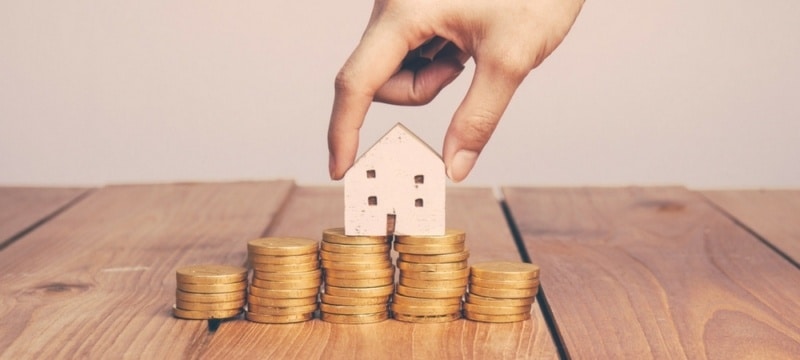I got a call from a reader the other day. She was trying to decide if she should pay off her investment property or pay off her primary residence.
It’s a fair question, but I could tell from our conversation that she didn’t really understand all of the tax benefits available to her as an owner of investment property and so she couldn’t compare her two options fully.
Her investment property is a 6-unit building on which she owes $125,000. The loan is fixed at 4.875 percent and the property brings in about $3,000 per month, or $36,000 per year.
She and her husband live in a single family home that they purchased for $175,000. They currently owe about $142,000 and the interest rate on the loan is 5.375 percent. They’ve had this loan for about seven years.
My reader and her husband have managed to build up an emergency fund of $50,000. The other pertinent fact is that they have a home equity line of credit for up to $130,000 on the 6-unit building.
They’re thinking of taking all the cash in their savings account to pay down the mortgage on their investment property, then taking out $80,000 from the home equity line of credit, which would be fixed at 4.25 percent.
They’d continue to make the regular monthly payment in order to pay off the loan on the investment property in a few years. When they’re done paying off the investment property, they’d turn their attention toward paying off their primary residence.
It’s a good example of how you can take gold and make hay out of it. In other words, one bad decision leads to several other questionable decisions.
I pointed out to my reader that by paying off the investment property quickly, she was going to wind up paying more in income taxes at the end of the year. Why? She can write off her expenses for the investment property against the income. If she doesn’t have any expenses, she’ll pay income tax on the investment income at her marginal tax rate, which might be 25 percent or 35 percent or higher.
And what about her primary residence loan at 5.375 percent? Why pay off the lower interest rate loan first? This doesn’t make much sense. You should always pay off the loan with the highest interest rate first.
I suggested that she and her husband start by refinancing their primary residence. Her current payment is $1,029. She can refinance the existing balance from a 30 year (she has about 25 years left on the loan) to a 15-year at 4 percent. She will shave 10 years off of the loan term, and her monthly payment will be $1,035, or $6 more per month.
By cutting 10 years off of her loan term, she’ll save roughly $120,000 in payments, or about what she owes on the 6-unit building.
Once she pays off her primary residence, she can use that $12,000 per year to either pay off whatever remains on her 6-unit building or buy another investment property. Either way, she’ll be way ahead of the game.
And what should she do with the $50,000 in cash? I suggested she might want to leave it in cash. If she decides to buy another property sooner, she’ll have the cash she needs to put down on the property and pay closing costs and have the cash reserves lenders require these days.
If she decides to keep the money in cash, she’ll have an emergency fund that she can rely on in the future. And these days, having a sizable reserve is a great thing to have.
Finally, I told her was that obtaining financing on an investment property is rather hard these days and her rate is a great rate for that building. If she were to want or need to finance the investment property in the future, she might not find a lender willing to give her the money. However, finding a lender to refinance her primary home should be much easier. I also told her to sit down with her accountant and go over the benefits and burdens that the investment property has on her federal income taxes before making a decision.







Ilyse,
Great article.
You failed to mention the sense of financial freedom that can come from retiring debt and living on an all-cash basis.
I’m all for tax credits, but being financially free is critically important to me. Current tax policy is just that: current. That can change in a heartbeat — especially if the Federal government decides that they need cash (which they do).
Peace of mind has a cost; in this case it’s lost tax credits. But it’s great knowing that I can invest the cash that I was previously using for personal and investment property mortgage payments.
For me, there’s an added benefit: I can grow my money without having to worry about jumping through government hoops to get tax writeoffs for my mortgage interest.
Cash is King — and I think you should extoll its virtues from the top of the highest mountain you can climb.